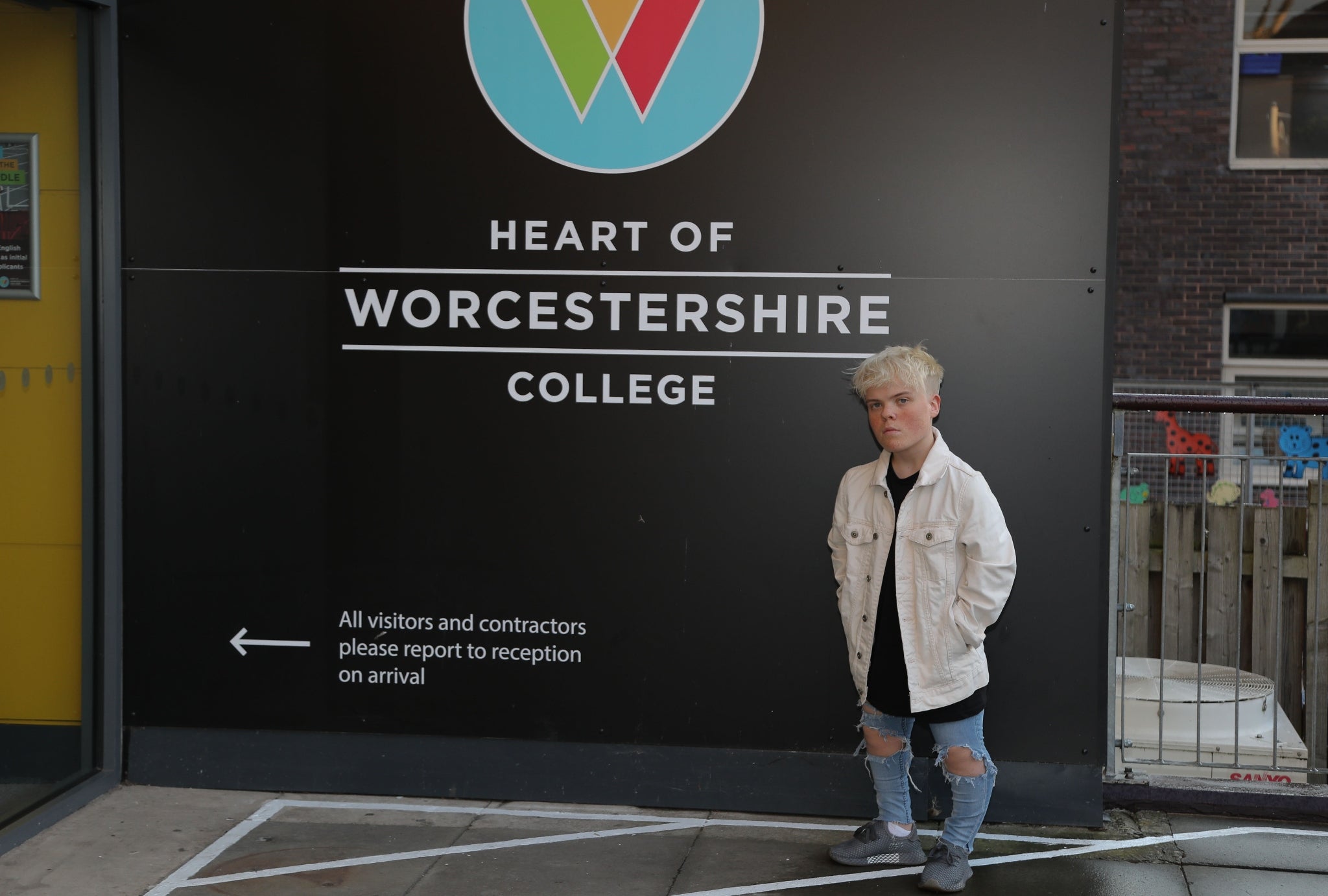When people like me are shut out of college and university, no wonder the government is failing to get disabled people into work
Louis Makepeace said his college told him he would be a 'safety risk' if he studied catering. Like him, I've been told no time and again


Eighteen-year-old Louis Makepeace was set to begin studying catering at college in September, but his place has been rescinded. But it’s not because he didn’t get the grades he needed.
Makepeace has a form of dwarfism called achondroplasia, and at three foot 10 inches, he said that the college told him he would be a “safety risk” to other pupils. Rather than make adjustments, such as installing a lower surface and hob, Heart of Worcestershire College has reportedly advised him to find another course – telling his mother he would “never be allowed to work in a commercial kitchen”. A spokesperson for the college said it could not comment because the student’s place on the course was “still under discussion”.
Let’s be clear: this treatment could potentially be considered illegal. The Equality Act 2010 says education and training providers have a duty to make “reasonable adjustments” so disabled people are not placed at a substantial disadvantage to non-disabled students. Equally, if an employer refused to hire Makepeace because of his needs, that would constitute discrimination.
But even if it is against the law, this is no anomaly. In fact, I know that it’s indicative of how a great number of people with disabilities are greeted throughout education and employment – with a no-can-do attitude, and no attempt to meet their personal needs.
I learned this myself as a student. I’d been diagnosed with scoliosis, a sideways curvature of the spine, in my early teens, but at university the two curves in my spine progressed to the point that each had what is known as a “Cobb angle” of over 40 degrees. I went to the disability service, asking if there was somewhere I could lie down in the middle of the day. The simple answer was no. Instead, they sent off an order for more than £1,000 worth of equipment for me, including a laptop so heavy I literally couldn’t take it anywhere without having it on wheels. Not exactly ideal for someone with severe spinal disorder.
Second time round, during my master’s degree, after months of delay when the disability service lost track of my application, I was told the institution could not accommodate the single thing I asked for: home access to some of the software we used, in case I was in pain and unable to travel to use the university’s own computers. Apparently my request was “course-related” not “disability-related”. At this point, I gave up trying.

It’s clear that navigating work life and academia is being made unnecessarily difficult for many disabled people, despite what the legislation says about the responsibilities of academic institutions and employers. Disabled adults are nearly three times as likely as non-disabled adults to have no formal qualifications, and as of January 2016, the UK employment rate among working age disabled people was 46.5 per cent (4.1 million), compared to 84 per cent of non-disabled people.
Some level of discrepancy in employment, it should be added, is to be expected; some disabled people are unable to work, and should receive the support (financial and otherwise) that they need to live a dignified life. But Makepeace’s story is just one of so many that shows a lack of awareness at best, and at worst an engrained reluctance to support people with disabilities. After all, how difficult can it be to provide an extra hob installed at a lower height?
At the end of last year, Theresa May revealed a plan for her government to get one million more disabled people into work. “The path a person takes in life and in work should not be dictated by their disability or health condition,” she said, building on government targets to halve the disability employment gap. But how can that happen if disabled people are being treated as impracticalities before they even get into the workplace?
The government needs to make employers, colleges and universities absolutely clear of their duties around inclusivity, and make financial support available for establishments so they can afford to make the necessary adjustments. Because in asking for access, disabled people aren’t asking for anything radical – they’re just asking for the same opportunities as everyone else.
Join our commenting forum
Join thought-provoking conversations, follow other Independent readers and see their replies
Comments
Bookmark popover
Removed from bookmarks